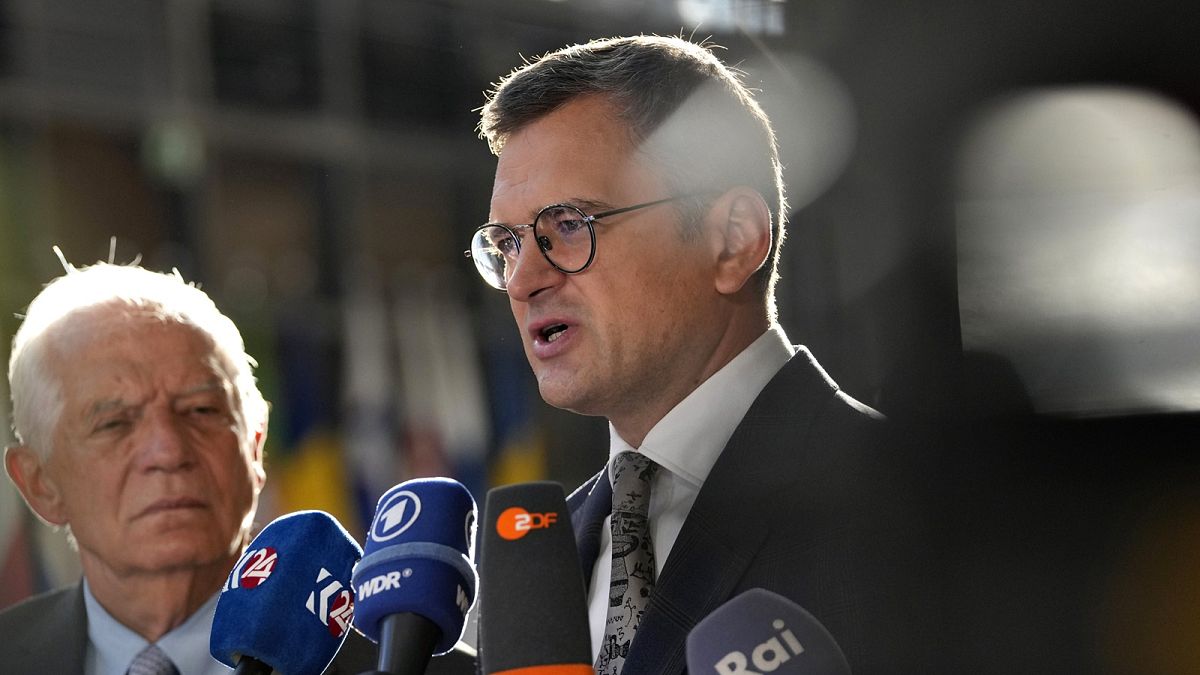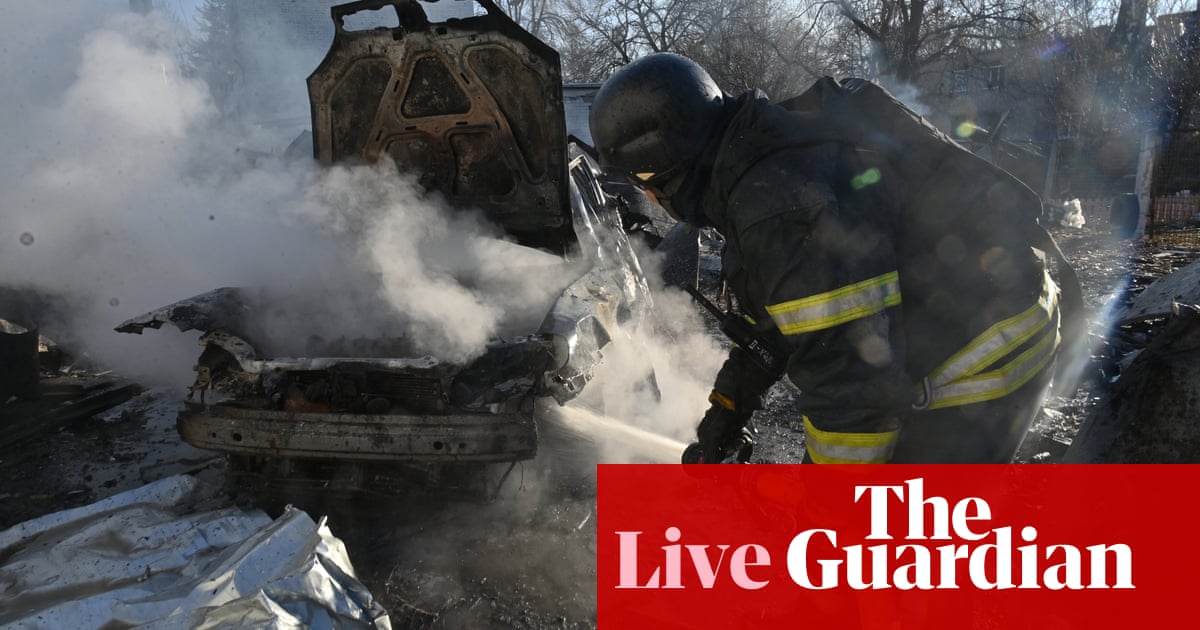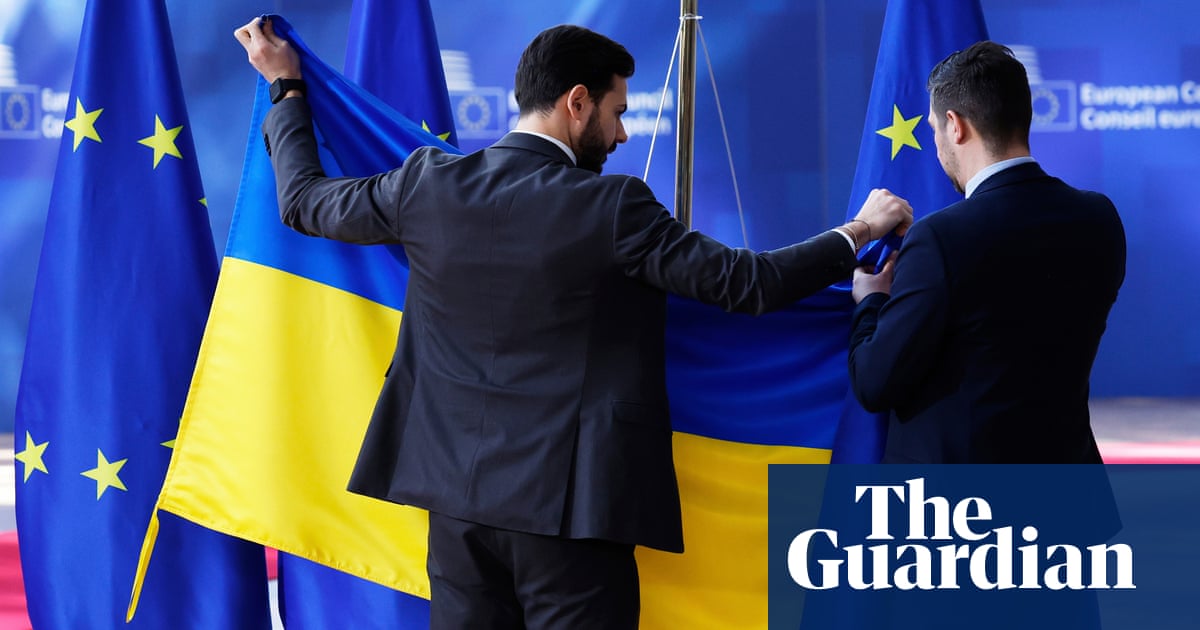Let Ukraine strike Russia and keep the momentum, Kuleba urges EU

Dmytro Kuleba has urged EU countries to take “bold decisions” and allow Ukraine to use donated weapons to strike deep into Russian territory.
Western allies, including the 27 members of the European Union, must immediately give Ukraine the permission to use donated weapons to strike deep into Russia and keep up the momentum of the Kursk incursion, Ukraine’s Foreign Affairs Minister Dmytro Kuleba said on Thursday as he joined a meeting of his EU counterparts in Brussels.
“What we want to avoid is the situation when the public message is that no one, in principle, is against deep strikes in Russia, but no real action is made to allow it,” Kuleba told reporters upon arrival.
“What really matters is the timing. And this is the issue today.”
The ground operation in the Kursk Oblast of southern Russia has been described as a major event in the Ukraine war. It marks the first time since World War II that Russian territory has been occupied by foreign forces.
The Kremlin has reacted furiously and launched a barrage of drones and missiles against Ukrainian cities, killing dozens of civilians and destroying critical infrastructure. The devastation has compounded long-simmering fears in Brussels that Moscow wants to unleash a humanitarian crisis in winter and trigger a new refugee wave across Europe.
Speaking of the need to protect “our cities” and “our children,” Kuleba said the donated weapons could be deployed to attack “legitimate military targets” in Russia, such as the airfields used by the Russian army to fire projectiles towards Ukraine.
“If we are allowed to strike, we will significantly decrease the capacity of Russia to inflict damage on our critical infrastructure. And we will improve the situation for our forces on the ground,” Kuleba said. “So those who may try to blame Ukraine for not being successful enough should always remember that the success of Russia depends on one thing: on the preparedness of partners to make bold decisions.”
“If decisions are taken, Ukraine is successful on the ground. If they are not taken, then do not complain (about) Ukraine, complain (about) yourself,” he added.
The issue of lifting restrictions on weaponry has been on the EU’s table for months, having been raised by President Volodymyr Zelenskyy in May during his visit to Brussels. The request has been granted by some member states, like the Netherlands, Sweden, Denmark, Finland, Poland and the Baltics, but the consensus is not universal.
Italy has denied the green light while Germany has refused to provide the Taurus cruise missiles, with a reach of up to 500 kilometres, that Kyiv is lobbying for.
Walk the talk
Standing by Kuleba’s side, Josep Borrell, the EU’s foreign policy chief, gave his full backing and said the restrictions placed on Western-supplied weapons should be lifted in accordance with international law to enable the right to self-defence.
“It’s clear that Russia wants to destroy completely the electricity system of Ukraine in order to put Ukraine into the dark and cold for the next winter,” Borrell said on Thursday. “Russia wants to bomb a European country into full capitulation.”
The matter, however, lies primarily in Washington DC, where the Joe Biden administration maintains limits on long-range ballistic missiles fearing an escalation of the conflict. The United Kingdom, another key donor, is also reluctant, pending America’s approval.
“We have a very open conversation with the United Kingdom, with the United States asking them not to waste the momentum that our soldiers and civilians paid for with their blood and sacrifice,” Kuleba said in Brussels.
“Long-term security for Europe starts with short-term, bold decisions for Ukraine.”
During the meeting of foreign ministers, the Ukrainian envoy will also raise the gap between the announcement of military supplies and the “actual delivery” of that assistance. The delays, he said, are “excessively long” and hinder war planning.
“That bothers us a lot,” Kuleba said.
The EU institutions and member states have pledged €39 billion in military support for Ukraine since the start of the invasion, but it’s unclear how much of this figure has arrived in the war-torn country. Last month, Brussels directly transferred €1.5 billion to Kyiv through a novel scheme based on Russia’s immobilised assets.
“It’s very easy to promise it’s a little bit more difficult to deliver,” Borrell conceded.
Lithuania’s Gabrielius Landsbergis warned North Korea and Iran were consistent in their supplies to Moscow, allowing the invasion to go on, and urged EU countries to step up.
“We have to ask ourselves a question: aren’t we, ourselves, a part of this problem?” he said, lamenting the lack of Patriots systems, the air defence systems that Ukraine desperately needs to repel Russia’s bombardment. “Are we taking this really seriously?”
Related
Zelenskyy reiterates call for air truce after huge Russian attack…
We need Russia to stop attacks, Zelenskyy says, backing calls for truce in air, at seaUkrainian president Volodymyr Zelenskyy has responded to overnight attacks
Europe scrambles to rearm as Trump threatens security guarantees and…
CNN — European leaders have vowed to rearm the continent at historic emergency talks h
Russia launches ‘massive’ attack on Ukraine after Europe rushes to…
Ukraine's energy and gas infrastructure came "under massive missile and drone shelling" by Russia on Friday, a Ukrainian minister said."The energy and gas infra
American severance may be averted, but Europe’s leaders must fear…
With a mixture of regret, laced with incredulity, European leaders gathered in Brussels to marshal their forces for a power struggle not with Russia, but with t












